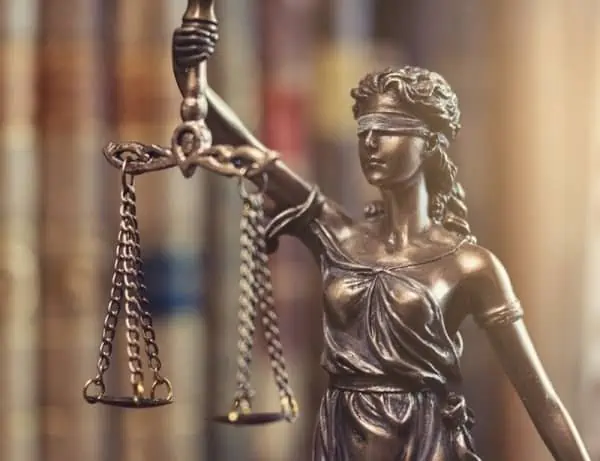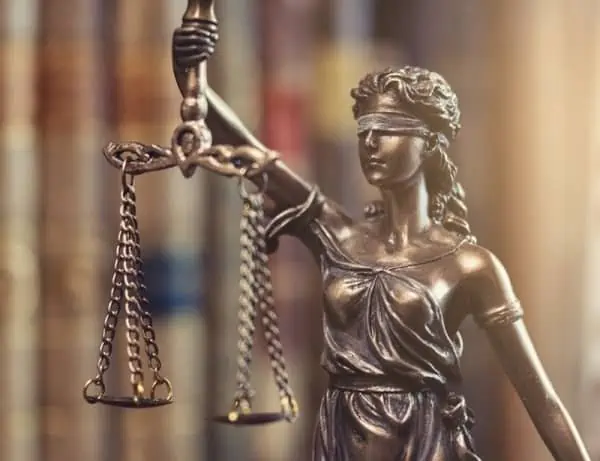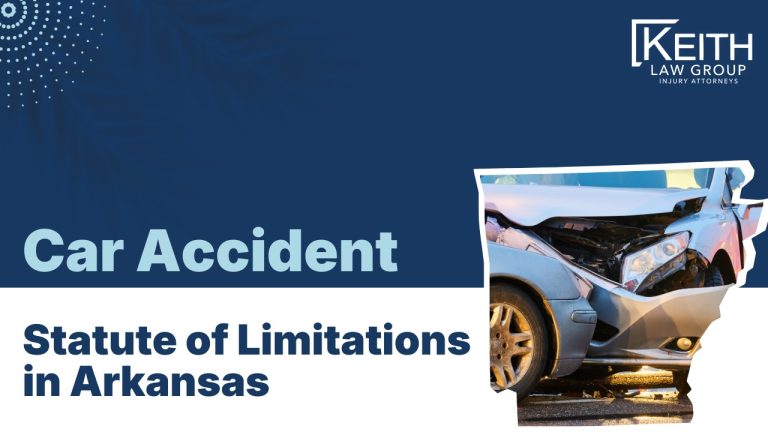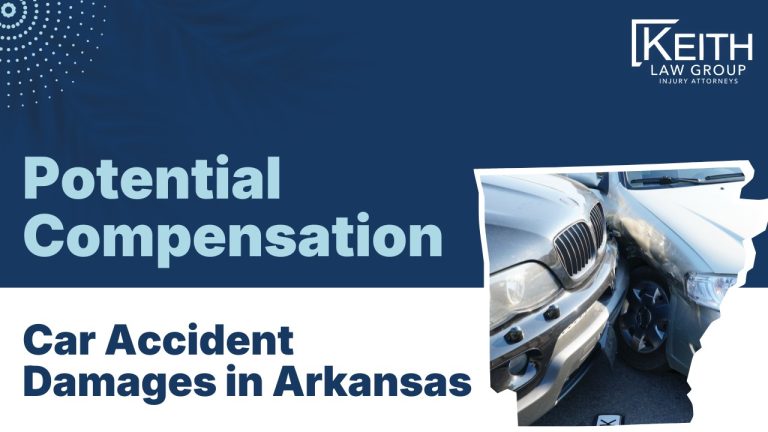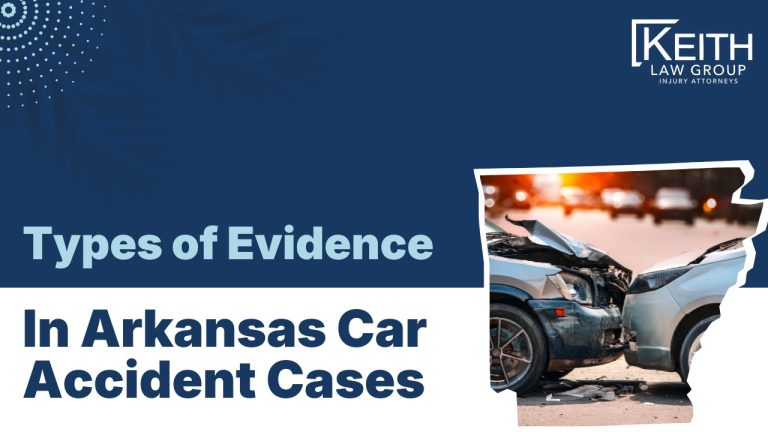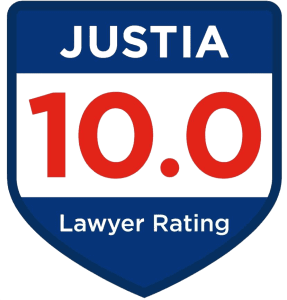- Published:
- Last Updated: February 17th, 2026

Attorney Sean T. Keith has been a personal injury lawyer for 30+ years, a nationally recognized Top 100 Trial Lawyer, and top car accident lawyer & motor vehicle accident lawyer in Arkansas.
Legally Reviewed
This article has been written and reviewed for legal accuracy and clarity by the team of writers and attorneys at Keith Law Group and is as accurate as possible. This content should not be taken as legal advice from an attorney. If you would like to learn more about our owner and experienced injury lawyer, Sean T. Keith, you can do so here.
Fact-Checked
Keith Law Group does everything possible to make sure the information in this article is up to date and accurate. If you need specific legal advice about your case, contact us. This article should not be taken as advice from an attorney.
Sean Keith's Accollades & Practice Areas He Specializes In
- Over $20 Million recovered in Medical Device Injury Lawsuits.
- Over $13 Million recovered in Car Accident Lawsuits and other Motor Vehicle Accident Lawsuits.
- Over $100 Million recovered in total on behalf of clients.
- Sean represents clients in cases involving personal injuries, car accidents, motorcycle accidents, truck accidents, wrongful death, slip and falls, nursing home abuse cases, nursing home elopement cases, and more.
Intro to Filing Car Insurance Claims in Arkansas
Ever been in a fender bender and felt lost on what to do next?
Filing accident claims for car insurance in Arkansas doesn’t have to be an intimidating process.
It’s crucial to act quickly and consult an accident lawyer or accident attorneys, so you can get the compensation you deserve without any hiccups, even if dealing with an uninsured motorist.
First things first, timing is everything.
Don’t sleep on filing your claim – doing so could leave you high and dry.

Next up, get familiar with Arkansas state laws – they’ll be your guiding light throughout the process.
Make sure you’re well-versed with your insurance coverage too; after all, knowledge is power! Consult a personal injury attorney or personal injury lawyer if needed.
Lastly, brace yourself for potential disputes – they’re not fun but being prepared will make all the difference, especially when dealing with an uninsured motorist.
An experienced attorney can help guide you through this process. So buckle up and let’s dive into the world of Arkansas auto accidents and car insurance claims!
Table of Contents
Steps to Take Immediately Following an Auto Accident in Arkansas
Ensure Safety and Call 911
After experiencing a car accident, it’s important to remember that the steps to take after a car accident are vital to ensuring the safety and well-being of everyone involved, particularly the crash victims
This includes:
- Checking yourself for injuries
- Assessing the well-being of passengers and other drivers
- Moving your vehicle off the road, if possible
Once you’ve ensured everyone’s safety in car accidents, call 911 to report the car crash.
Be sure to provide accurate information about your location, the severity of the incident, and any injuries for those filing a claim or potential injury claim.
Exchange Information with Other Drivers
After making sure everyone is safe, including pedestrians, it’s essential to exchange information with any other drivers involved in car accidents or a car crash.
This should include the following details for the insurance claims adjuster:
- Name and contact details
- Driver’s license number
- Vehicle registration information
- Insurance company name and policy number
Remember, it’s crucial not to admit fault or discuss details of the accidents, crash, blame, or injuries at this stage.
Document the Scene with Photos/Videos
To support your accident claims and potentially strengthen your case for injured accident victims in a personal injury dispute, take photos or videos of:
- Medical expenses
- The overall scene of the accident
- Damage sustained by all vehicles involved
- Any visible injuries suffered by injured accident victims, car accident victims, or anyone involved in accidents, personal injury
- Skid marks or debris on the road that could indicate how the collision occurred, often crucial in understanding accidents, car accident victims’ injuries, and causes of the crash.
These visual records can be invaluable when filing a car or auto insurance claim, or dealing with legal matters related to your Arkansas auto accident, personal injury, injuries, and road accidents.
Obtain Witness Contact Details
If there were any witnesses present during your auto accident, their testimonies could significantly impact your personal injury case.
Be sure to collect their contact information, including:
- Injuries sustained
- details of the accidents
- any interaction with the same insurance agent or adjuster
Be sure to also collect their personal contact information, including:
- Name
- Phone number
- Address (if they’re comfortable providing it)
Ask if they’d be willing to provide a written statement detailing what they saw during the incident involving injured accident victims, particularly car accident victims, for the accident lawyer or car accident attorneys.
Filing Your Car Insurance Claim in Arkansas
Now that you’ve taken all necessary steps at the scene of your auto accident, it’s time to file your car insurance claim after accidents.
It’s important to be aware of the statute of limitations for car accidents, as it dictates the time frame within which you must file a claim or lawsuit to pursue compensation for damages or injuries.
To do this, follow these steps involving an insurance claims adjuster, road incidents, and crash situations:
- Contact your insurance company as soon as possible after accidents, crash, or injury involving an adjuster.
- Submit any photos or videos you took at the scene of accidents as evidence for injured accident victims, crash, and accident lawyer.
- Cooperate with your insurance adjuster and provide any additional information they request during the insurer’s investigation, as insurance companies, lawyers, and accident victims may need this information.
Provide all relevant details about the incident, including:
- Date and time of the accident
- Location of the crash
- Information on other drivers involved
- Witness contact information and statements (if available)
By following these guidelines and taking immediate action after an Arkansas auto accident, you’ll be well-prepared to handle accidents, address injuries, consult a lawyer if needed, and file a successful car insurance claim in the event of a crash.
This will also help you navigate any potential legal issues that may arise from the incident.
Reporting an Insurance Claim and Completing the Arkansas Motor Vehicle Accident Report (SR)
Contact Your Insurer Promptly
After an auto accident in Arkansas, it’s crucial to get in touch with your insurance company and a lawyer as soon as possible, especially if there are injuries involved.
This ensures that you’re following the terms of your collision insurance or policy, which may require prompt reporting of any crash and injury incidents.
Here are some tips for contacting your insurer:
- Have your insurance policy number handy
- Be prepared to provide details about the accidents, such as location, time, injuries, insurance adjuster, and other parties involved in the crash.
- Take note of any questions or concerns you have about the insurance adjuster, insurance companies, accidents, injuries, and the claims process.
Complete SR Form Accurately
The Arkansas Motor Vehicle Accident Report (SR) is a critical document when filing a car insurance claim for accidents, injuries, or crash-related incidents.
It provides essential details about the accident and any injury that can help determine liability and settle disputes.
To complete the SR form accurately:
- Gather necessary information from all parties involved in accidents, injuries, crash, and injury situations
- Include specifics like date, time, location, weather conditions, road conditions, and car accident details such as accidents, crash severity, and injuries.
- Describe how the accident occurred (e.g., speeding, failure to yield) and mention any injuries that resulted, as this information may be important for an injury lawyer.
- Note any injuries or property damage sustained by each party, including injury details for accident victims, car accident specifics, and any involvement of insurance companies.
- Attach a copy of the police report if available
Remember to be honest and thorough when filling out this form for insurance companies – false statements about injuries or car accident details could result in penalties, denial of your claim, or the involvement of a lawyer.
Submit Within 30 Days of Accident
Arkansas law requires that you submit your completed SR form within 30 days after an auto accident occurs.
Failing to do so could lead to fines, involvement of lawyers, or even suspension of your driver’s license.
Insurance companies and injury reports are also crucial in cases involving injuries.
To ensure timely submission:
- Mark your calendar with a reminder for 30 days after the date of the injury accident, as insurance companies and lawyers may need to be informed about any injuries sustained.
- Keep track of deadlines for submitting additional documentation related to your car accident injury claim (e.g., medical records) to insurance companies, ensuring accident victims meet all required timelines.
- Follow up with insurance companies if you haven’t received confirmation that they’ve received your SR form after a car accident, especially for accident victims with injury.
Keep Copies for Personal Records
It’s essential to keep copies of all documents related to your auto accident, injury, and insurance claim, including the SR form.
This can help protect your interests and ensure you have a complete account of the incident.
Consider keeping both digital and physical copies of these documents, especially for insurance companies, your rental car, accident records, injury reports, and accident victims:
- Arkansas Motor Vehicle Accident Report (SR)
- Police report
- Photos or videos from the accident scene
- Medical records and bills
- Repair estimates for vehicle damage
By following these steps, you’ll be well-prepared to file a car insurance claim after an auto accident or injury in Arkansas.
Remember that each state has its own requirements, so always double-check with your insurer or local DMV if you’re unsure about any aspect of the claims process.
Required Documentation and Information for Filing a Car Accident Case
Police Report Copy
A crucial piece of evidence when filing an accident or injury claim is the police report.
This document provides a comprehensive account of the auto accident, including:
- The involved parties
- Witness statements
- Officer’s observations
- Determination of fault (if applicable)
To obtain a copy, contact the law enforcement agency that responded to your motor vehicle accident.
Having this report strengthens your car insurance claim and can help you pursue compensation for damages and injury.
Medical Records and Bills
Your medical records are essential in proving the extent of your injuries after a car crash for accident victims.
They serve as evidence for any injury claim you file, demonstrating the severity of your condition and its impact on your life.
Some examples include:
- Emergency room records
- Doctor’s notes
- X-rays or other imaging results
- Physical therapy reports
Gather all medical bills related to the injury and accident.
These documents will show how much you’ve spent on treatment and help determine fair compensation.
Proof of Lost Wages
If you’ve missed work due to injuries from an auto accident, it’s important to provide proof of lost wages due to the injury.
This documentation can include:
- Pay stubs from before and after the accident
- A letter from your employer confirming missed workdays and lost income due to injury from a car accident for accident victims
- Tax returns or W2 forms if self-employed
By showing how much income you’ve lost as a result of the injury from the car accident, you’re more likely to receive adequate compensation for those losses.
Repair Estimates for Vehicle Damage
After an auto accident, it’s crucial to assess the damage done to your vehicle and any injury sustained.
Obtain repair estimates from at least two reputable mechanics or body shops.
These estimates should detail:
- Specific parts needing repair or replacement
- Labor costs associated with repairs
- Estimated time needed for repairs
These documents will not only support your car accident insurance coverage claim but also help you negotiate with the at-fault party’s insurance company, providing assistance to accident victims and addressing any injury concerns.
Understanding Fault and Compensation Laws in Arkansas Car Accidents
Modified Comparative Fault System
Arkansas follows a modified comparative fault system when determining compensation for car accident victims.
This means that if you are partially at fault for the accident, your compensation will be reduced by the percentage of your fault.
For example:
- If you are 20% at fault in a car accident and suffer $10,000 in damages, you as the accident victim will receive $8,000 (80% of $10,000).
- If you are 60% at fault in a car accident and suffer $10,000 in damages, you will receive $4,000 (40% of $10,000)
However, it’s important to note that if your percentage of fault in a car accident is equal to or greater than 50%, you won’t be eligible to recover any compensation.
Damages Reduced by Percentage at Fault
As mentioned above, under Arkansas’ modified comparative fault system for car accidents, your compensation will be reduced by the percentage of your fault.
This applies to economic damages like medical expenses and lost wages as well as property damage claims such as non-economic damages like pain and suffering.
Some examples:
- You’re 30% at fault in the car accident: Your total damages amount to $15,000; you’ll receive $10,500 (70% of $15,000)
- You’re 45% at fault in the car accident: Your total damages amount to $20,000; you’ll receive $11,000 (55% of $20,000)
No-Fault Insurance Not Required
Unlike some states that require no-fault insurance coverage for car accidents regardless of who is responsible for causing the crash—Arkansas does not have this requirement.
Instead, Arkansas drivers must carry liability insurance with minimum limits:
- Bodily injury per person: $25,000
- Bodily injury per accident: $50,000
- Property damage per accident: $25,000
This means that in Arkansas, after a car accident, you’ll file a claim with the at-fault driver’s insurance company to seek compensation for your damages.
Liability Limits: $25,000/$50,000/$25,000
Arkansas law requires drivers to carry liability insurance with minimum limits of $25,000 per person for bodily injury, $50,000 per accident for bodily injury, and time limit of $25,000 per accident for property damage.
These limits are meant to cover the costs associated with injuries or property damage caused by the insured driver in an auto accident.
Dealing with Uninsured and Underinsured Motorists in Arkansas
Optional Uninsured Motorist Coverage
In Arkansas, auto insurance policies offer an optional uninsured motorist (UM) coverage.
This type of coverage protects you in a car accident when the at-fault driver doesn’t have any insurance or is underinsured.
Some benefits of opting for UM coverage include:
- Protection against financial loss
- Covers medical expenses and property damage
- Peace of mind knowing you’re covered
It’s essential to consider adding this coverage to your policy, as it can save you from significant financial stress in case of an accident with an uninsured or underinsured driver.
Collision Coverage as Alternative Solution
Another way to protect yourself against uninsured or underinsured motorists in Arkansas is by including collision coverage in your auto insurance policy.
Collision coverage helps pay for repairs or replacement costs if your vehicle is damaged due to a collision with another car or object, regardless of who’s at fault.
Some advantages of having collision coverage are:
- Covers vehicle repair costs
- Can be used even if the other driver involved in a car accident has no insurance
- Offers additional protection beyond liability coverage
Collision coverage can be a valuable addition to your policy, especially if you want comprehensive protection in the event of a car accident on the road.
File Lawsuit Against At-Fault Driver
If you’re involved in an accident with an uninsured or underinsured motorist in Arkansas, one option available is filing a lawsuit against the at-fault or other driver’s insurer.
Taking legal action can help recover damages such as:
- Medical bills
- Lost wages due to missed work
- Pain and suffering compensation
However, keep in mind that a car accident lawsuit can be time-consuming and costly, so it’s crucial to weigh the pros and cons before pursuing this route.
Notify Insurer About Underinsured Driver
If you find yourself dealing with an underinsured motorist after a car accident in Arkansas, make sure to notify your insurer as soon as possible.
Informing your insurance company about the situation can help them:
- Assess the extent of damages
- Determine if additional coverage is needed
- Provide guidance on next steps
Prompt communication with your insurer after a car accident can ensure that you get the right support and assistance throughout the claim process.
Hiring a Car Accident Attorney: Benefits and Considerations
Expertise in Handling Complex Cases
Car accident attorneys specialize in handling cases related to auto accidents.
They have extensive knowledge about the legal aspects of car accidents and personal injury claims.
This expertise can be invaluable when dealing with complex cases.
- Interpretation of state-specific laws
- Understanding of medical terminology
- Familiarity with insurance policies and coverage limits
- Knowledge of legal procedures and deadlines
Negotiating Fair Settlements
One of the primary roles of a car accident attorney is to negotiate fair settlements for car accident insurance claims on a collision claim on behalf of their clients.
They are skilled negotiators who understand how to deal with both insurance providers, adjusters and opposing counsel.
An experienced car accident attorney will help with:
- Evaluating the value of your claim
- Presenting evidence to support your case
- Countering lowball settlement offers from insurance companies
- Ensuring that you receive compensation for all car accident damages, including medical expenses, lost wages, and pain and suffering
Navigating Legal Processes Efficiently
The legal processes involved in filing a car insurance claim can be time-consuming and confusing for those without experience.
A car accident attorney can help navigate these processes efficiently, ensuring that all necessary paperwork is completed accurately and submitted within required deadlines.
A car accident lawyer will help with:
- Filing claims with insurance companies
- Gathering evidence, such as car accident police reports, witness statements, and medical records
- Preparing legal documents for court proceedings or negotiations
- Representing you in court or during mediation sessions
Contingency Fee Basis Consideration
Many car accident attorneys work on a contingency fee basis, meaning they only get paid if they successfully recover compensation for their clients.
This arrangement allows injured accident victims to seek legal representation without worrying about upfront costs.
Here are three (3) points to consider when hiring a car accident attorney on a contingency fee basis:
- Percentage: Most car accident attorneys charge between 25% – 40% of the total settlement amount.
- Expenses: Some car accident attorneys may require you to cover certain expenses, such as court fees or expert witness fees.
- No Recovery, No Fee: If the car accident attorney is unable to recover compensation for you, they will not charge any fees.
Navigating Arkansas Car Accident Regulations and Ensuring Fair Compensation
In conclusion, when dealing with Arkansas auto accidents, it’s crucial to follow the necessary steps to file a car insurance claim.
Start by taking immediate action at the scene of the accident, such as exchanging information and documenting evidence.
In the case of a hit and run car accident, try to collect as much information as possible about the fleeing vehicle, such as its make, model, color, and license plate number, to assist in tracking down the responsible party.
Report your claim and complete the Arkansas Motor Vehicle Accident Report (SR) for proper documentation.
Ensure you gather all required documents and information for filing a car accident case, including photographic evidence and medical records.
Familiarize yourself with fault and compensation laws in Arkansas to understand how they impact your claim.
Be prepared to handle uninsured or underinsured motorists by knowing your rights and coverage options.
Lastly, consider hiring a car accident attorney who can help you navigate the complex legal process and ensure fair compensation for your injuries and damages.
By following these guidelines, you’ll be better equipped to handle any auto accident situation in Arkansas.
Now that you’re armed with this knowledge, take action!
Protect yourself on the road, know your rights, and seek fair compensation if an unfortunate accident occurs.
Frequently Asked Questions
-
Some common causes of auto accidents in Arkansas include distracted driving (such as texting while driving), speeding, driving under the influence of alcohol or drugs, aggressive driving behavior like tailgating or weaving through traffic, weather-related conditions like heavy rain or foggy visibility.
-
In general, you should report your car accident insurance claim as soon as possible after the incident occurs.
However, different insurance companies may have specific deadlines for reporting claims – therefore it’s essential to review your policy or contact your insurer directly for accurate information regarding their requirements.
-
Yes!
Under Arkansas’ comparative fault law, you can have covered accident and still file a claim and receive compensation even if you were partially at fault for the accident.
However, your compensation will be reduced by the percentage of fault attributed to you.
-
If the other driver involved in the accident is uninsured or underinsured, you may need to rely on your own insurance coverage (such as uninsured/underinsured motorist coverage) to help cover your expenses related to the accident.
-
The cost of hiring a car accident attorney can vary depending on factors like experience and location.
Many attorneys work on a contingency fee basis, meaning they only get paid if they successfully recover compensation for their clients.
In these cases, fees are usually calculated as a percentage of the total recovery amount obtained for their client.
All Posts for the Car Accident Lawsuit Legal Guide
Practice Areas
You pay
Nothing
unless we win
Do You Have A Case?
Recent Legal Posts & Articles
Recent Legal Guides

Choose Us For Your Personal Injury Case
- Available 24/7
- No Upfront Fees
- Free Case Evaluation
- No Fees Unless We Win!

